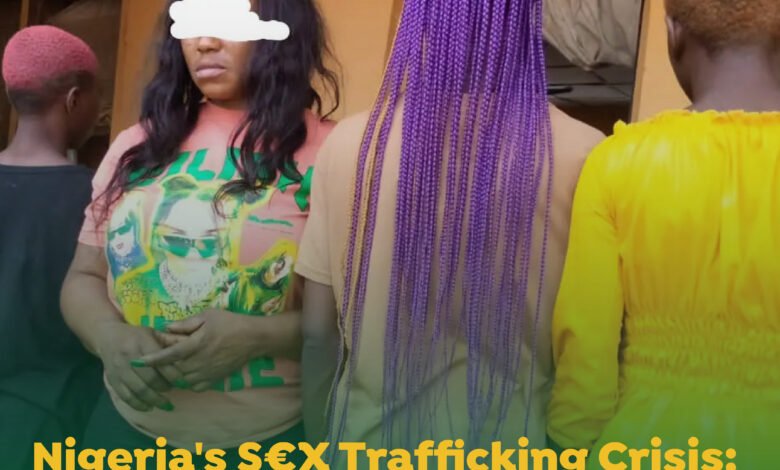
On June 7, 2024, a viral video of 10 Nigerian teenagers aged 15 and 16 who were trafficked to Ghana for prostitution sparked widespread outrage and condemnation. The viral video showed underage girls in distress, camped in an undisclosed location, with one of them saying, “They give us out to men, and they don’t give us any money; they collect everything”.
The girls also revealed that they were beaten, molested, and forced into prostitution without pay, with one of the victims declaring that three of the trafficked girls belonged to the same father and mother. However, as the conversation around the charged video spread like wildfire, the persistent occurrence of those unholy acts quickly called into question the efforts of parents and other critical stakeholders in curbing and addressing the menace.
While the Minister of Women Affairs, Uju Kennedy-Ohaneye, Hon. Abike Dabiri-Erewa, Chairman, Nigerians Diaspora Commission (NiDCOM), and other top government functionaries swiftly addressed the latest forceful involvement of teenage girls in prostitution, experts believe Nigeria should do away with its cosmetic approach to crucial national issues in favor of adopting curative techniques that can effectively tackle the scourge without fear or favor.
Rescued by tip-off’
NiDCOM chairman Hon. Abike Dabiri-Erewa via her X handle, claimed the girls were lured to Ghana on the promises of a better life, only to force them into prostitution. She said NIDO, the umbrella body of Nigerians living in Diaspora, provided a tip-off that led to their rescue. She also called on the National Agency for the Prohibition of Trafficking in Persons to take decisive action, describing the situation as “very, very heartbreaking.
“According to a report, Nigeria is the single largest source of trafficked persons in Europe and Asia. DW.com investigation also highlighted the increasing trafficking and exploitation of Africans (Nigerians) on migration routes to Europe and the Middle East, with experts urging urgent international cooperation to curb this alarming trend. The report also revealed that the Nigerian Agency for the Prohibition of Trafficking in Persons (NAPTIP) has stranded more than 15,000 Nigerian women and girls attempting to reach Europe in Mali.
No deterrence for traffickers’
Experts say that a lack of prosecutions has emboldened many human traffickers who ensnare their victims with the promise of taking them to a better life in Europe. “I feel strongly that the government needs to sit up and prosecute them so that they will serve as a deterrent to others,” a lawyer, Francis Kozah, posited. Hon. Abike Dabiri-Erewa echoed a similar verdict, advocating for the identification and prosecution of culprits as a deterrent to others involved in this destructive business. “Investing heavily in condemnation instead of prosecution of traffickers leads to an increase in human trafficking cases, whether for forced labour or prostitution,” said R Rasheed Raheem, a public affairs analyst.
“When you have millions of people who wallowed in multi-dimensional poverty, unemployment, insecurity, the promise of a better in a faraway country feels especially appealing” Musa Auwal stated “And when you added this to ignorance on the parts of the parents and the victims, you have a recipe for exploitation and trafficking”.
Unless the question of poverty, unemployment, insecurity, and proper funding for agencies like NAPTIP is addressed, experts believe nothing significant in terms of curbing the menace will happen.





